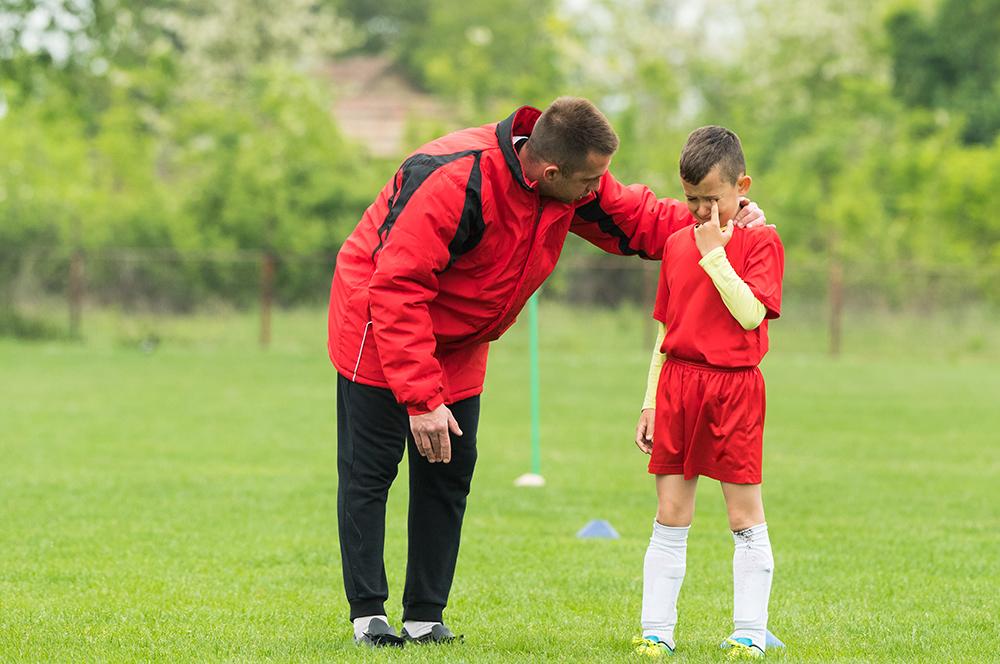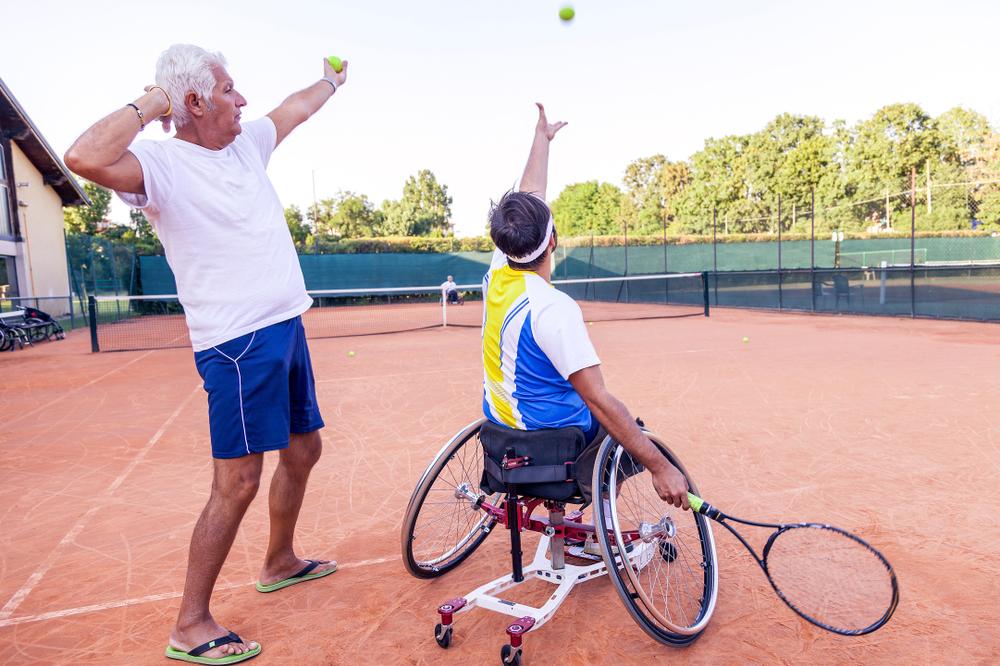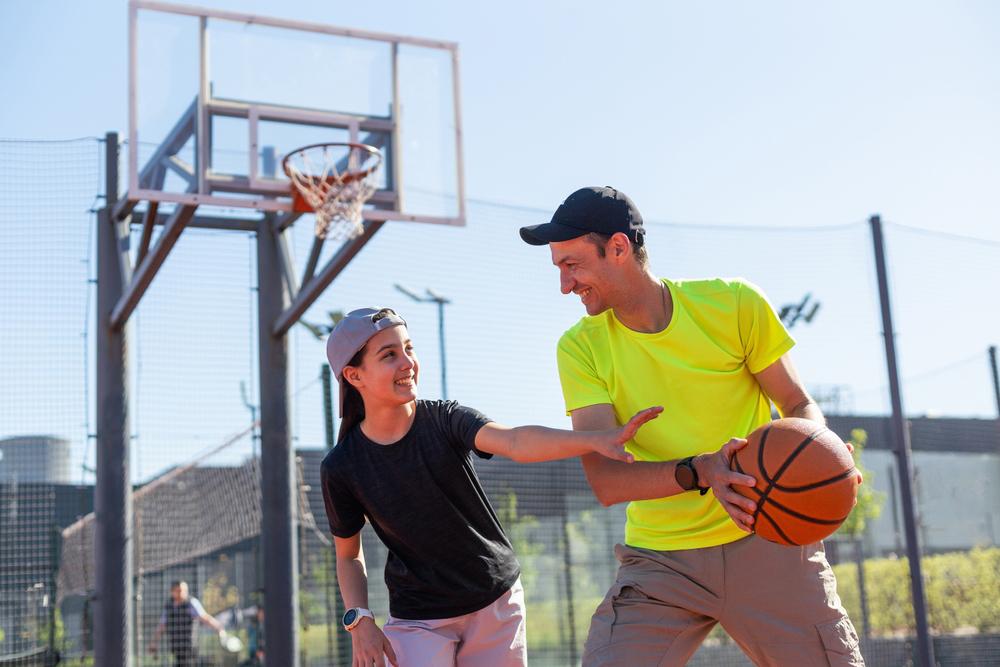 As a coach, finding success on the field goes beyond wins and losses. According to research, a successful coach-athlete relationship can also create a connectedness that motivates and supports the athlete.
As a coach, finding success on the field goes beyond wins and losses. According to research, a successful coach-athlete relationship can also create a connectedness that motivates and supports the athlete.
Connecting with an athlete on an individual level additionally impacts the athlete’s development of personal values, ethics, and emotional literacy. Emotional literacy is defined as the ability to recognize, understand, handle, and appropriately express emotions.
Coach José M. Burgos, the head soccer coach at Catalyst Maria High School in Chicago, Ill. – and recently recognized inaugural Champion Coach of the SportsEngine, Inc. and TrueSport award program – is a strong advocate for building a team culture that encourages athletes to lean into their feelings and embrace caring harder and loving deeper, which ultimately enhances their performance on and off the field.
However, not all coaches are equipped with a game plan to teach their athletes about emotional literacy, so here are five coaching strategies you can use to boost emotional literacy on the field.
1. Don’t Be Afraid to Be Human
A study showed that athletes viewed their coaches as teachers, mentors, friends, and parental figures; and although athletes often placed their coaches on pedestals, they also saw them as human.
The athletes in the study described how their great coaches were not afraid to make mistakes, show faults, or admit that they did not have all the answers. One athlete shared, “They don’t act like they are better than you or above you. [Instead, they] come down to your level and act human.” The athletes also felt that their coaches were particularly human and relatable when they expressed emotions.
“I believe that the emotional aspect of [coaching] is fundamental,” Burgos explains as he compares coaching skills and drills to coaching for the development of an athlete as a whole. He adds, “You’re going to need the human touch of someone who believes in you, particularly for athletes like ourselves who have personalities. Because we’re not just machines and we have feelings. As soccer players, we need to be loved. We’re very emotional beings. Most of us athletes, former athletes, or coaches, there’s some aspect of art inside of us where we get sad. We win and we lose, and we feel empty afterwards.”
When coaches and athletes acknowledge that everyone is human and everyone has feelings, it facilitates an atmosphere of understanding and acceptance. So, take the time to get to know your athletes at a personal level. Share aspects of your life outside of the sport. In the study, an athlete explained how their “coach shared enough about his own life and his own past experiences and his own kids and his wife that made him seem more human.” Additionally, once realizing a coach was more than just a coach, another athlete at the collegiate level shared that “being away from home and really having someone to look up to and coach you, and mentor you, and help you with anything you needed [was important]. It gave you a sense of not only to want to win for your team, but to want to win for [your] coach and make him proud of you.”
2. Use Supportive Coaching Behaviors
It’s not always about what coaches say, but what they do that influences their athletes.
“I coach high school, and kids are very sensitive. It’s important to remember that they’re not there to perform at the same level that we see on TV, or that we see in magazines. If they do, that’s wonderful. But I think a lot of times, coaches’ expectations are too high and that creates stress, and then the stress is shown to the kids. And to me, it’s not about that,” says Burgos.
Supportive coaches display and encourage positive attitudes and language, caring behaviors, and effective emotion management. It’s recommended that coaches monitor their behaviors and emphasize positive feedback and encouragement, providing athletes with clear goals and instructions, while minimizing unsupportive behaviors such as yelling, manipulating, and threatening athletes.
Burgos explains, “If [a] coach decides to be authoritarian, or if he decides to apply tough love on [athletes], then we’re now creating a scenario where I don’t think the toughest survive, but those who are just willing to put up with it. It shouldn’t be about that, it should be holistic. We should talk about what brought us onto the field in the first place.”
Finding out what brought your athletes to your sport can help spark the ways in which you motivate each athlete individually. Study results explore the fact that “some players [are] motivated because their coaches were enthusiastic, caring, and/or passionate. Others [are] motivated by the desire to please their coach.” The most important finding, however, was that “their coaches ‘touched something inside them.’”
When you know what motivates your players, it becomes easier to provide them with the support they need when they’re lacking vision or purpose.
3. Be an Active Listener
Research confirms that a good relationship is characterized by mutual trust, confidence in each other’s abilities, good communication (especially good listening skills), and a coach’s display of interest and respect for the athlete beyond his/her athletic identity.
Essentially, when it comes to communication, in addition to being both accessible, approachable, and open to conversations about anything – whether it is related to the sport or your athlete’s personal life, being a good listener helps create an atmosphere where athletes are comfortable expressing their thoughts and feelings.
As a coach, you can improve your listening skills by approaching every conversation with an open and objective mindset, asking questions for clarification, and summarizing and reflecting back what was said. By enhancing your ability to listen, you’re showing your athletes that you have a genuine interest in getting to know them, and they’ll be more inclined to open up to you on a deeper level.
4. Approach Problems as ‘Ours,’ not ‘Yours’
The book, Group Dynamics in Exercise and Sport Psychology, explains the process of communal coping as an event that occurs when a stressor is viewed by one or more individuals as ‘our’ problem, meaning that responsibility for the stressor is shared.
In practice, this might look like a coach inviting the team to collaborate on creating team rules that players would be accountable for. If one of the athletes breaks a rule, it’s an issue that the entire team will have to deal with.
5. Team Up with Their Communities
Building a strong foundation of belonging within a team takes effort from both the coach and the athletes but having a positive environment that supports social and emotional skills development in young athletes is worth every bit energy.
According to one study, emotional literacy discourse tunes into what people want in their own lives – acknowledgement, empowerment, agency, and a sense of positive connection with others.
Burgos made community a focus of his coaching strategy. He shares, “To build community here, one of the things that we did this year was invite family. When you’re dealing with young athletes, it’s important to know where they come from and who is behind them, and what their agenda is as well. Not just in a superficial way. The way I did it, I intentionally created events for the family to come, like hosting picture day, so the seniors could take pictures with their mothers and their mothers could see what we do. I realized quickly that when you involve the parents, particularly in communities where there is so much stress, they become committed. They commit to it, they’re cheerful, they’re positive, you give them a sense of a purpose.”
Incorporate your athlete’s personal community to foster a team culture of mutual trust and caring. You can try a team outing to celebrate the start of the season or host a team dinner in the middle of the season when morale might be low. Whatever you choose, remember to apply the same tactics listed above to get to know your athlete’s families on a deeper level. That will also show your athlete that you are genuinely trying to get to know them as a person, not just an athlete.
_______
Coaching is not always about ensuring that an athlete develop sport-specific skills that only serve them over the life of their athletic career. Coaching is about setting athletes up for success in their life outside of sport, which can be done in part by creating an environment that allows for the development of emotional literacy. So, take the time to cultivate a strong, authentic connection with your athletes using the five emotional literacy strategies above and give them the ability to understand and manage their emotions, communicate with others more effectively, and self-coach themselves through tough times.



